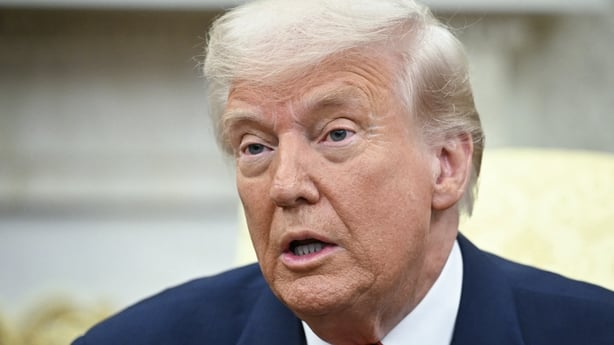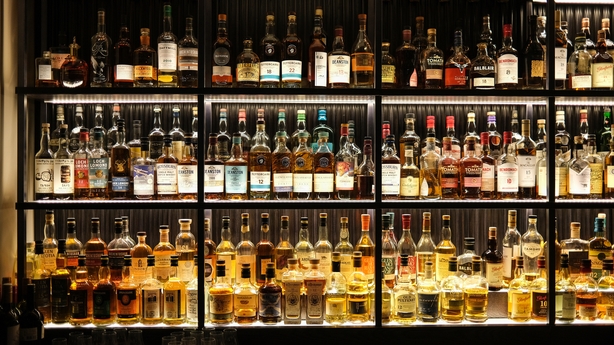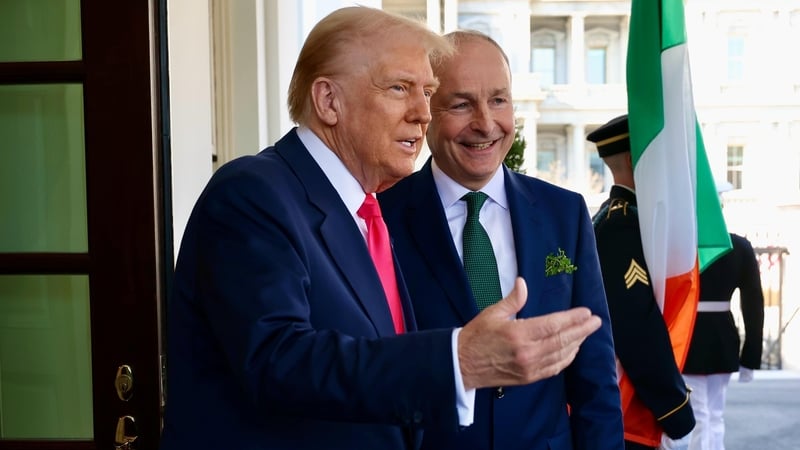Some years ago, British journalist Tim Moore travelled across Trump-voting US states in a 1920s Ford Model T.
Inevitably it broke down frequently and he relied on the kindness of vintage car enthusiasts to get back on the road.
He travelled through the disintegrating Rust Belt and encountered disillusioned people who felt left behind after the industries, which once defined their cities, collapsed never to be replaced.
Even those angered by Donald Trump and his supporters, cannot come away from reading Tim Moore’s book Another Fine Mess, without sympathy for those living in that industrial wasteland.
Many of those who voted for the US President did so because he said would re-invigorate manufacturing industries.

Now he is following through on his commitment by placing a 25% tariff on steel and aluminum imports including those from the EU.
The idea is that it will increase demand for US products by making goods from abroad more expensive.
It is protectionism and may not work. But it is central to his Make America Great Again motto.
This week the EU responded to Trump’s import taxes by reimposing a wide range of tariffs on US goods which had been levied on American products during his first term.
One of the duties was on bourbon whiskey, which is mainly made in Kentucky which voted Republican last year.
The response by Donald Trump this week has been to threaten 200% tariffs on EU alcohol products potentially hammering the Irish drinks industry.
Like all the US President’s threats, some are carried through, others are not.
Unlike the EU which immediately imposed reciprocal tariffs on American goods, the UK and Mexico have not.
Both countries were praised by US Commerce Secretary Howard Lutnick for adopting a more “pragmatic and thoughtful” response.
According to the Central Statistics Office, Ireland exported €904 million of beverage and tobacco products to the US last year. The Irish Whiskey Association says over €800m of that is spirits.
There was very limited advantage in Brussels adding bourbon to its list of products subject to tariffs.
The EU exports much more spirits to the US than it buys, so dragging the drinks industry into the trade war may be counterproductive.
Taoiseach Micheál Martin said: “We’re going to engage strongly now with the Commission in respect of that issue, because it is a serious issue, not just for Ireland, but indeed for other European member states as well.”
The drinks row may be resolved by negotiation.

But Donald Trump’s remarks at the White House St Patrick’s event this week show Ireland is now facing multiple economic headaches.
Over the next two weeks, the Trump administration will finalise its country-by-country examination of 5,000 products which could be covered by tariffs to be announced on 2 April.
The US President’s comments to the Taoiseach were both comforting and disconcerting.
While his tone about Ireland was warm, his message regarding US pharmaceuticals using Ireland as a base from which to sell products to America was concerning.
He said, if he was president, he would never have allowed the drug manufacturers to set up in Ireland in the first place if he knew they would sell products to the US.
He added he would have applied a 200% tariff and “they would never have gone” to Ireland in the first place.
Donald Trump also repeatedly referred to the “massive deficit” he said Ireland has with the US.
This pharmaceutical issue is much bigger in scale than the drinks industry as Ireland sells €58 billion of drugs and medicines to the US out of total exports of €72bn to the US.
While Trump did say Ireland and the US will “work together” he also said he wanted to “even out” the trade deficit.
Simon McKeever, CEO of the Irish Exporters Association, says “Ireland is not going to escape tariffs imposed by the US.”
“People need to go through their inbound and outbound supply chains to do a risk assessment.”
Already there are signs that the boom in multinational jobs in Ireland may be slowing.
Recruitment company Hays, which provides services to many international groups based here, is trimming its workforce by 17%.
At the same time drug company Ely Lilly announced last month it is building four new plants in the US employing 13,000 and Pfizer said it could move some of its manufacturing outside America back to existing facilities in the States to avoid tariffs.
There is no doubt that Donald Trump’s policies will have huge repercussions for Ireland.



